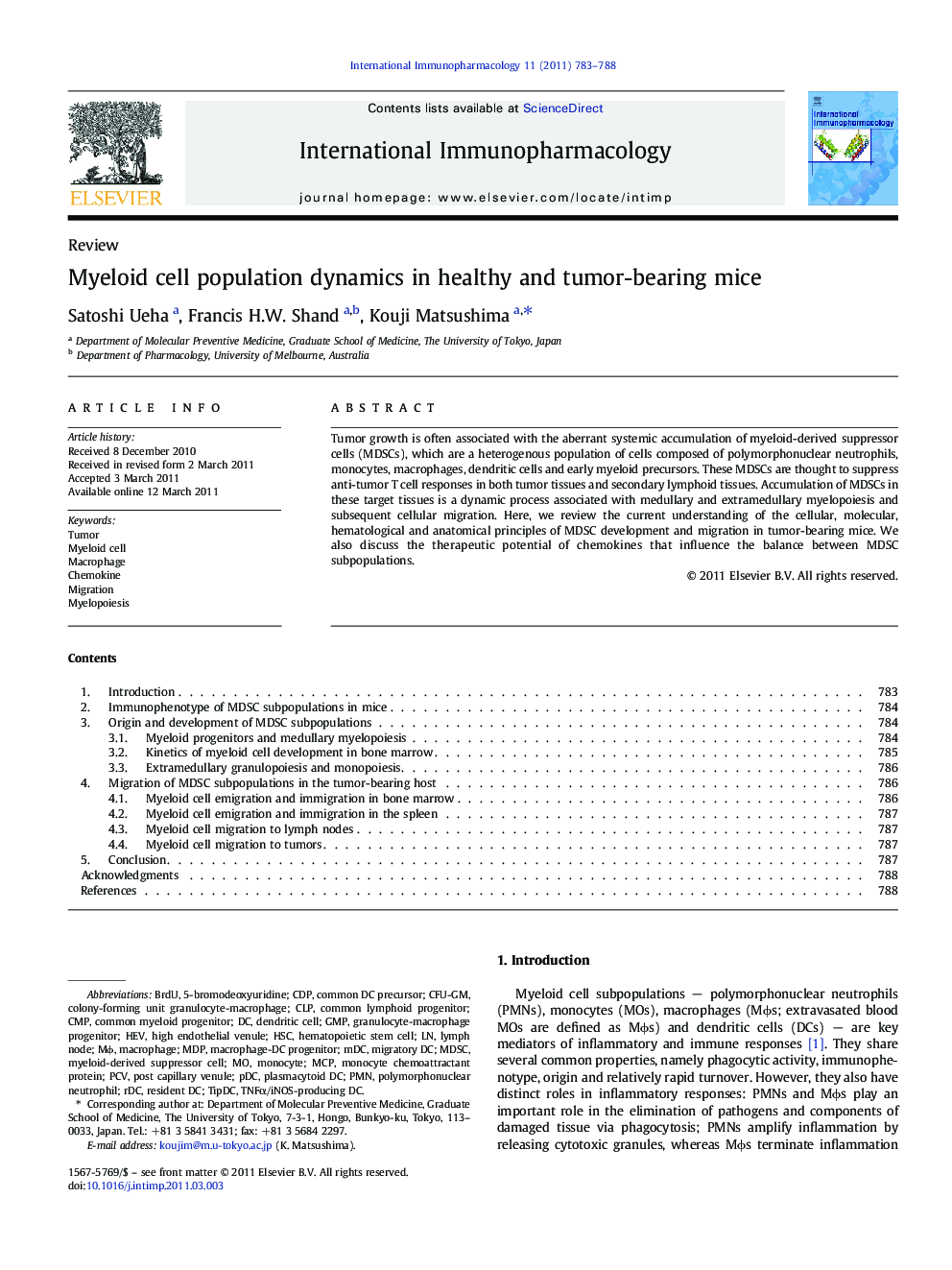| Article ID | Journal | Published Year | Pages | File Type |
|---|---|---|---|---|
| 5834018 | International Immunopharmacology | 2011 | 6 Pages |
Abstract
Tumor growth is often associated with the aberrant systemic accumulation of myeloid-derived suppressor cells (MDSCs), which are a heterogenous population of cells composed of polymorphonuclear neutrophils, monocytes, macrophages, dendritic cells and early myeloid precursors. These MDSCs are thought to suppress anti-tumor T cell responses in both tumor tissues and secondary lymphoid tissues. Accumulation of MDSCs in these target tissues is a dynamic process associated with medullary and extramedullary myelopoiesis and subsequent cellular migration. Here, we review the current understanding of the cellular, molecular, hematological and anatomical principles of MDSC development and migration in tumor-bearing mice. We also discuss the therapeutic potential of chemokines that influence the balance between MDSC subpopulations.
Keywords
HSCPMNMDSCMDP5-bromodeoxyuridineMDCCMPGMPCLPCFU-GMPDCCDPHEVPlasmacytoid DCMCPMϕBrdUTumorHematopoietic stem cellDendritic cellMyeloid cellmyeloid-derived suppressor cellRdcMacrophageMigrationMonocyteMyelopoiesispolymorphonuclear neutrophilPCV یا Pneumococcal conjugate vaccinehigh endothelial venulemonocyte chemoattractant proteincommon lymphoid progenitorcommon myeloid progenitorChemokineLymph node
Related Topics
Life Sciences
Immunology and Microbiology
Immunology
Authors
Satoshi Ueha, Francis H.W. Shand, Kouji Matsushima,
